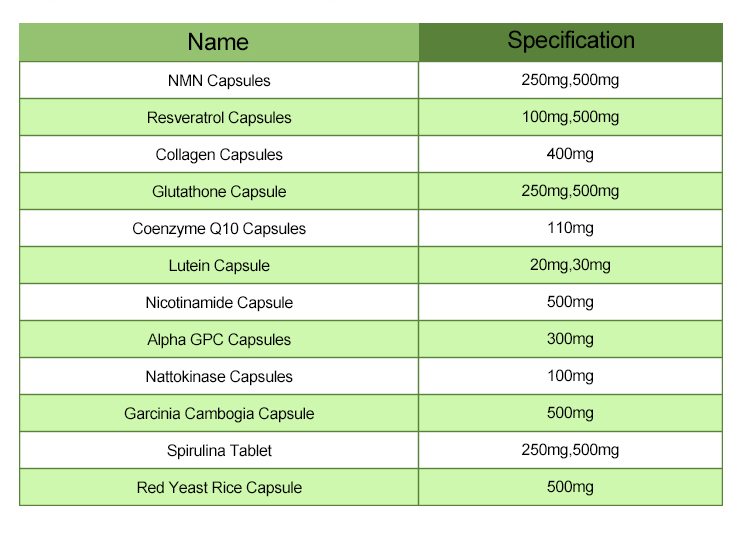Coenzyme Q10 capsules are dietary supplements that contain Coenzyme Q10 in a concentrated form. Coenzyme Q10 (CoQ10) is a naturally occurring compound found in every cell of the body. It’s a vital component of cellular energy production and also functions as an antioxidant, protecting cells from damage caused by harmful molecules.
Here’s a comprehensive overview of Coenzyme Q10 capsules, including their benefits, usage, potential side effects, and research findings:
Benefits of Coenzyme Q10 Capsules:
Energy Production: Coenzyme Q10 plays a crucial role in the production of adenosine triphosphate (ATP), which is the primary energy source for cells.
Antioxidant Properties: It helps neutralize harmful free radicals, reducing oxidative stress and inflammation.

Heart Health: Coenzyme Q10 is believed to support heart health by improving energy production in heart muscle cells and acting as an antioxidant to protect against oxidative damage.
Neuroprotective Effects: Some research suggests that Coenzyme Q10 may have neuroprotective properties, potentially benefiting conditions like Parkinson’s disease and Alzheimer’s disease.
Muscle Health: Coenzyme Q10 may help improve exercise performance and reduce muscle fatigue.
Usage of Coenzyme Q10 Capsules:
Coenzyme Q10 supplements are available in various forms, including capsules, softgels, and chewable tablets.
The typical recommended dosage ranges from 50 to 200 milligrams per day, although higher doses may be used for specific health conditions under medical supervision.
It’s often recommended to take Coenzyme Q10 with a meal containing fat to enhance absorption, as it’s a fat-soluble compound.
Research Findings of Coenzyme Q10 Capsules:
Heart Health: Several studies have investigated the use of Coenzyme Q10 in heart failure, hypertension, and other cardiovascular conditions. While results have been mixed, some research suggests that Coenzyme Q10 supplementation may improve symptoms and outcomes in certain cardiac conditions.
Neurological Disorders: Limited research suggests potential benefits of Coenzyme Q10 supplementation in Parkinson’s disease, Alzheimer’s disease, and other neurodegenerative disorders. More studies are needed to confirm these effects.

Exercise Performance: Some studies have shown that Coenzyme Q10 supplementation may improve exercise performance and reduce fatigue, particularly in older adults and athletes.
Safety and Side Effects: Coenzyme Q10 is generally considered safe for most people when taken orally in recommended doses. Side effects are rare but may include gastrointestinal discomfort and allergic reactions in some individuals.
Quality and Sources of Coenzyme Q10 Capsules:
When choosing a Coenzyme Q10 supplement, look for products from reputable brands that undergo third-party testing for quality and purity.
Coenzyme Q10 supplements are available in various formulations, including ubiquinone and ubiquinol. Ubiquinol is the reduced form of Coenzyme Q10 and may have better absorption, especially in older adults or those with certain health conditions.
Interactions and Precautions of Coenzyme Q10 Capsules:
Coenzyme Q10 may interact with certain medications, including blood thinners, blood pressure medications, and chemotherapy drugs. Consult with a healthcare professional before taking Coenzyme Q10 if you’re on medication.
Pregnant and breastfeeding women should consult with a healthcare provider before taking Coenzyme Q10 supplements.
In summary, Coenzyme Q10 capsules are widely used for their potential benefits in energy production, antioxidant support, heart health, and more. While research on its efficacy in various health conditions is ongoing, Coenzyme Q10 is generally considered safe and well-tolerated when taken at recommended doses. However, it’s essential to consult with a healthcare professional before starting any new supplement regimen, especially if you have underlying health conditions or are taking medications.
